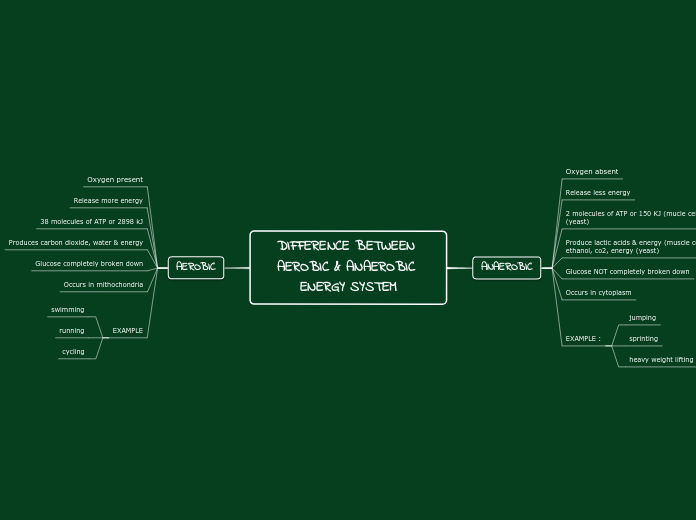by Nazrin Nazriq 4 years ago
362
DIFFERENCE BETWEEN AEROBIC & ANAEROBIC ENERGY SYSTEM
The body's energy production can be classified into aerobic and anaerobic systems. Aerobic energy production requires oxygen and occurs in the mitochondria, breaking down glucose completely to produce 38 molecules of ATP, carbon dioxide, and water, thus releasing more energy.









